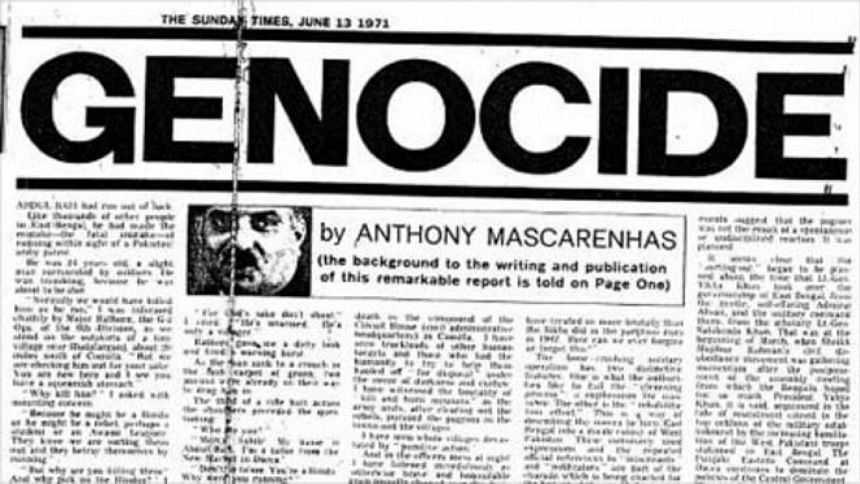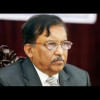March 25 as Genocide Day

We are heartened by the parliament's declaration of March 25 as Genocide Day. This is to consecrate the supreme sacrifice of the valiant souls who were killed by the Pakistan army during our Independence War. That said, it is disappointing to know that the UN is yet to recognise the killings of the occupying force as genocide.
Genocide is defined in Article 2 of the Convention on the Prevention and Punishment of the Crime of Genocide (1948) as "any of the following acts committed with intent to destroy, in whole or in part, a national, ethnical, racial or religious group..." Newspapers of the gory days of 1971 teem with reports of the kind of atrocities committed in Bangladesh which the UN says is tantamount to genocide. Even Pakistan army generals have described the motive behind their brutal actions on the night of 25 March 1971 and the nine months thereafter. These are crimes that fall under the said UN article.
It is not only a matter of numbers alone, three million, which by itself qualifies the killings as genocide; what matters also is the way in which the carnage was carried out, and the trauma, that has been left behind. And these are no less horrifying than similar atrocities of the 20th Century.
We would hope that a rigorous campaign would be launched to get UN recognition in this matter. The government should go the whole hog, reinforcing its efforts internationally to have the UN acknowledge this as genocide. And that we hope would put a stop to those who deny the killings as genocide.

 For all latest news, follow The Daily Star's Google News channel.
For all latest news, follow The Daily Star's Google News channel. 







Comments